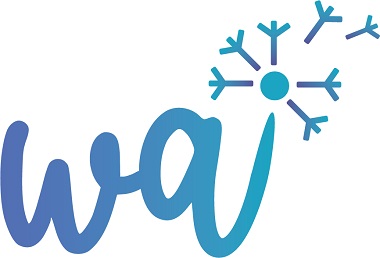Coeliac disease is a serious autoimmune condition that can lead to infertility, osteoporosis and small bowel cancer if left untreated.
But alarming new research reveals that 50% of GPs find coeliac disease difficult to diagnose and almost 90% believe that it is often overlooked when investigating infertility. In fact, it takes an average of 13 years to reach a proper diagnosis.
Coeliac disease is caused by intolerance to the protein gluten found in wheat, barley and rye. There is no cure or medication and treatment is a strict gluten-free diet for life.
Although around 1 in 100 people in the UK have the disease, NICE (National Institute for Health and Clinical Excellence) says that just 10-15% of those who have the condition have a proper diagnosis.
Sarah Sleet, Chief Executive of Coeliac UK said: “The Charity is seeing around 1200 new Members join every month but it is currently estimated there are around half a million people in the UK who are undiagnosed. Doctors should be following NICE guidelines but it seems some are too quick to diagnose people with IBS rather than arrange for a coeliac blood test. According to recent research almost 25% of coeliac patients had previously been told they had IBS or were treated for it before they were diagnosed with coeliac disease. The sooner someone is diagnosed and begins a strict gluten-free diet, their gut will begin to heal and the risk of further complications will reduce. However, it is essential to keep eating gluten until the blood test and biopsy are completed otherwise the results could give a false negative.”
And according to Dr Shahzadi Saleem, an Oxford GP who took part in the survey, “It is one of the most misdiagnosed diseases in the UK and easily confused with other less dangerous conditions”
“We want people who assume they have a wheat intolerance or Irritable Bowel Syndrome to ask their doctor for a blood test in case they actually have the more serious coeliac disease,” Dr Saleem adds. “If you have this condition you need to know as early as possible.”
Proper diagnosis, according to national guidelines, is a 3 step process:
- Patients discuss symptoms with their GP
- GP administers a simple blood test which is sent to a lab for analysis
- If blood test is positive, GP refers patient to a gastroenterologist for an endoscopy
Symptoms vary between individuals and can include bloating, abdominal pain, nausea, constipation, diarrhoea, wind, fatigue, anaemia, headaches, mouth ulcers, recurrent miscarriage, weight loss, skin problems, joint pain, depression and nerve problems.
“If you suspect you might have the condition, book an appointment with your GP as soon as you can and ask them to carry out a blood test for coeliac disease,” says Dr Saleem.
-Ends-
Notes to Editors:
For more information please contact Alexis Kieft alexis@orbitalmediapr.com / 0207 702 6544 or Pauline Kent pauline@orbitalmediapr.com / 07809 195871
Survey of 100 GPs from across the UK was conducted in February 2013. For full survey please contact alexis@orbitalmediapr.com
For more information regarding Coeliac UK and coeliac disease visit www.coeliac.org.uk











Don’t forget that not all types of gluten intolerance test positive on a blood test but it is still a damaging condition. My Mother had had all types of tests but was not diagnosed until she was in her 70’s when she had already suffered all sorts of other debilitating conditions linked to coeliac disease. I too tested negative for antibodies but have only started to recover my health after a strict gluten free (among other things) diet. I think that many more people are gluten intolerant than just those with coeliac disease and this, although difficult to diagnose, should also be taken into account by GP’s.
Yes I’ve heard of non coeliac gluten intolerance and wonder how you do get a diagnosis for that. I’ve had a negative blood test too but on further research discover that my already fairly gluten free diet would have meant this test was a waste of time anyway. you have to be eating wheat or other gluten for at least 3 weeks before the blood test and longer before the biopsy. I don’t think many GPs have even heard of NCGI. I think I’m just wheat intolerant – all I know is eating wheat is not an option and like you, I avoid other foods too due to serious allergies. The poor diagnosis leads to so many other conditions for people – let’s keep shouting about it till the message gets out there. We don’t just all have IBS!!!